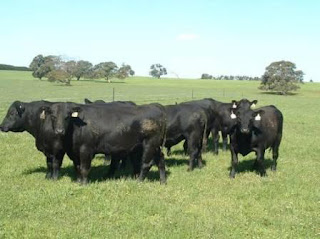My friend Jonathan, a British national, was working as a tour operator in Bournemouth. He booked an older British couple (let's call them Maggie and Sal) for a trip to Benidorm on Spain's Costa Blanca, a beautiful area popular with British tourists,
According to Jonathan, Benidorm is a bit like Acapulco with a dense beachside strip of high-rise hotels packed to the gills with tourists. Jonathan warned Maggie and Sal that being on the beach might not suit their tastes but Maggie was firm in her tour package selection for one reason: it included two tickets on the fabled "Lemon Express"--something that would make her the envy of all her friends.
 |
| The fabled--and now defunct--Lemon Express. |
Maggie was adamant in her choice. Sal was ambivalent. He'd been leaning more towards a quiet caravan park in Croatia. Seeking a compromise, Jonathan booked them into the last hotel on the strip, away from Benidorm's densely populated central beach.
The morning after they arrived, Maggie proudly presented herself in front of the hotel with a reluctant Sal in tow. Within minutes, the bus arrived to take them to the train and the retired couple boarded the empty bus.
"Please move to the back," said the bus driver.
"Certainly!" said Maggie and the pair walked to the back of the bus where Sal grabbed the window seat and promptly fell asleep.
The bus edged along the strip and stopped at nearly every hotel. Dozens and dozens of British couples eagerly boarded, all steadfastly clutching their prized tickets for the Lemon Express. They cheered when the driver turned in at the station. He watched as row after row of chattering couples patiently exited the bus with one exception: a radiant Maggie stood alone in the aisle.
As she stepped past the driver, he said, "But madam, where is your husband?"
She turned and patted him on the shoulder, "Oh, he's not feeling up to this so I just decided to let him sleep. He'll be fine until I get back."
The driver shrugged and parked the bus in the adjacent lot where he, too, napped until the train's return.
The journey up the coast to Gata de Gorgos was everything Maggie had hoped for and more: the charm of the old-time carriages as they gently swayed up the mountainsides; the handsome waiters who passed out cool, sleek glasses of chilled, sparkling wine; the fascinating artisans who so expertly crafted fine, Spanish guitars. She was proud of her newfound independence and, for several hours, didn't miss Sal in the least.
When the group returned to the bus, Maggie was, again, first to board. She walked down the long, narrow aisle, found her original seat next to a still-slumbering Sal and proceeded to revisit her trip by sorting through her ample bag of souvenirs. The bus snaked along the Benidorm strip leaving happy couples in its wake until, finally, it reached its final destination: Maggie and Sal's hotel. Bag in hand, Maggie marched up the narrow aisle and presented herself--alone--to the driver.
"But madam," he asked again, "Where is your husband?"
"Sir,"she responded, "I'm afraid my husband's dead."
"Dead!?" he said, horrified. "When did he die? Just now?"
"No," she said. "He died this morning just after we boarded the bus."
Baffled, the driver asked, "Why didn't you say something?!"
"Well, there wasn't anything I could really do about it," she explained, "He's always doing something like this, and I decided I wasn't going to let him ruin my trip. Besides, I really wanted to go on that Lemon Express."

